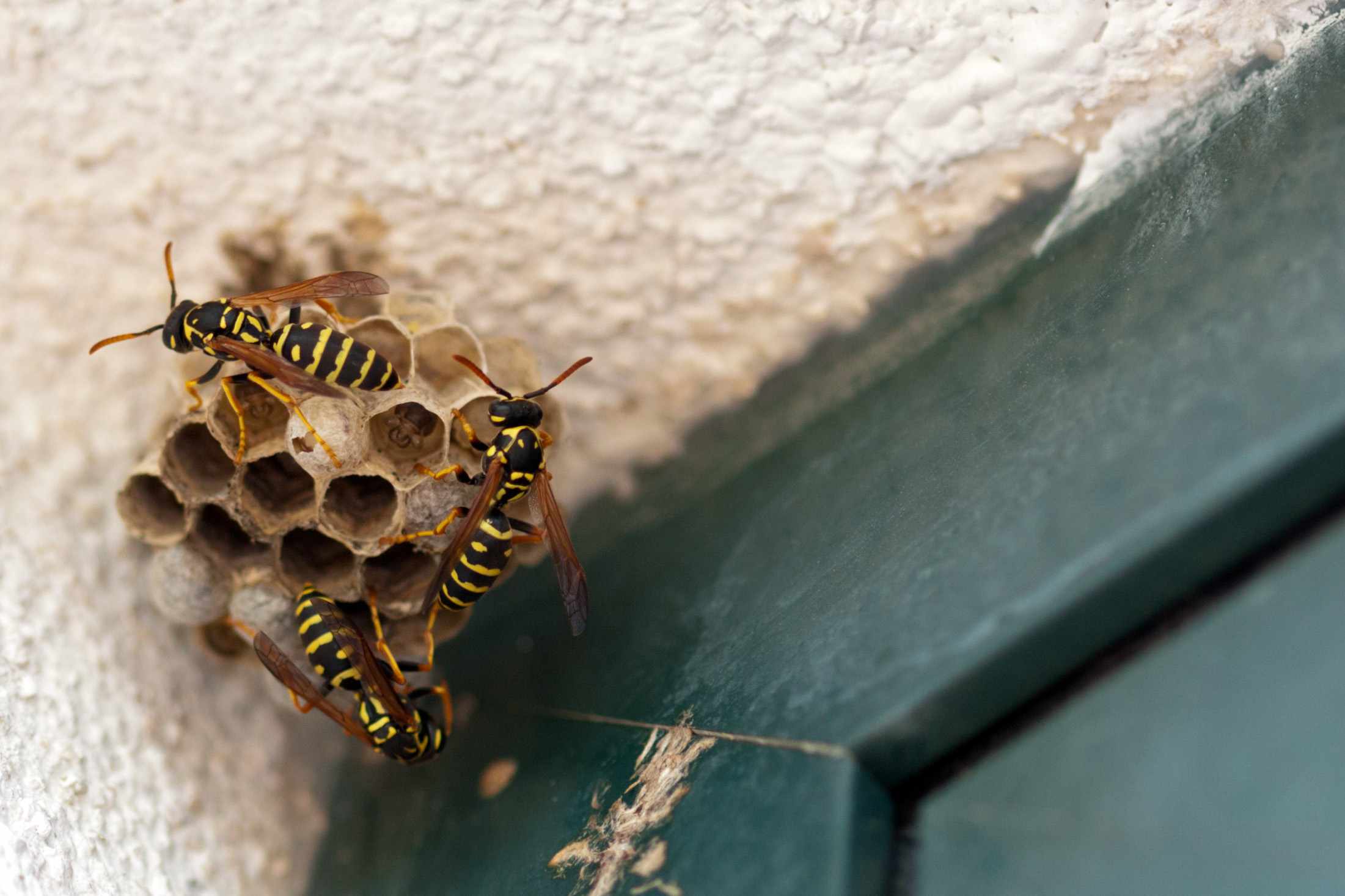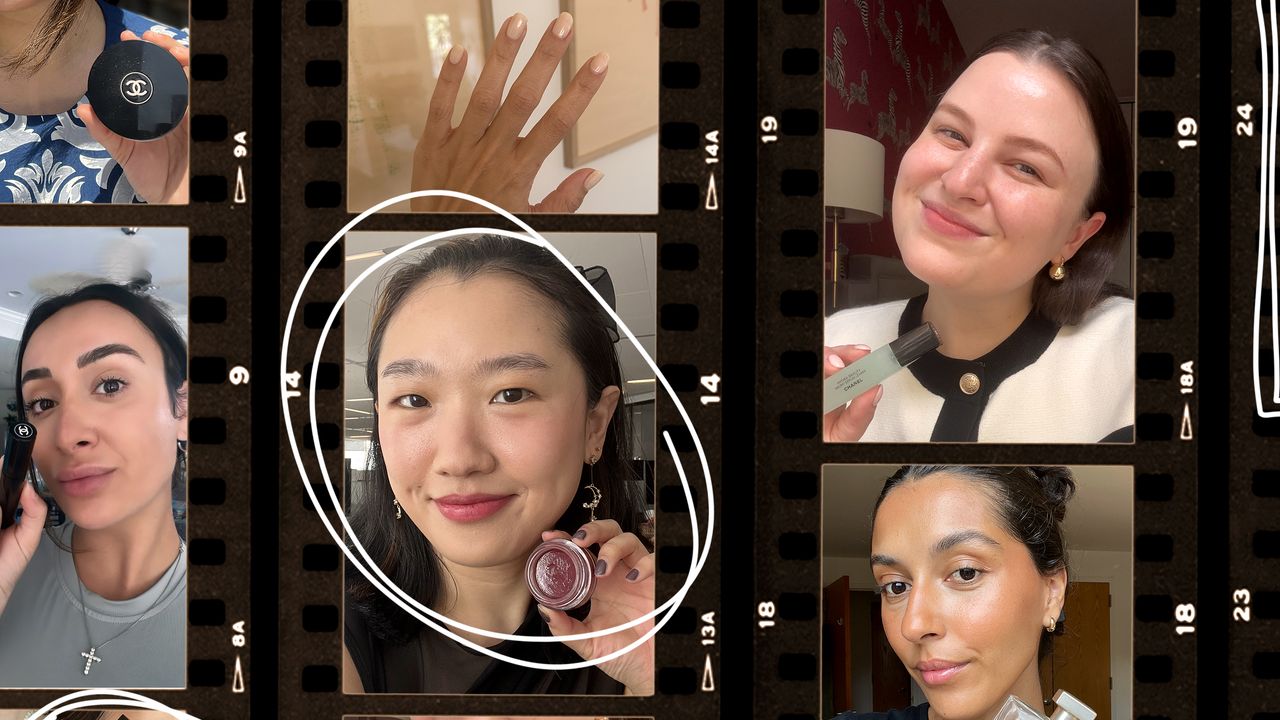Key Points
- You can kill wasps instantly with household items like soapy water, lemon extract spray, or hairspray, but commercial sprays are the most reliable.
- Timing is crucial—treat nests in the early morning or evening when wasps are less active, and always wear full protective gear.
- Avoid risky methods like fire or gasoline, and never swat at wasps, as aggression triggers group attacks through pheromones.
Wasps build nests just about anywhere. Under eaves, inside deck boxes, outbuildings, and around pools, underneath patio umbrellas, and in underground chambers in your lawn are a few places to watch for wasp activity. When the nest is threatened, they become aggressive, attack, and sting.
Setting out traps, planting herbs they don’t like, and using essential oils are long-term solutions to keeping wasps away. But when you need to act fast, here are seven methods that dispatch wasps on contact.
7 Fast-Acting Ways to Kill Wasps Instantly
Most commercial sprays kill wasps on contact. A number of household products are also effective, like soap and water, a top-rated choice. But if you need something fast, here are some other wasp eliminators to take care of the problem.
- Soap and Water: A good starting point is 2 tablespoons of dish soap to 1 quart of water. Mix in a spray bottle, adjust the nozzle to stream, and aim to hit wasps directly. Soap clogs their pores and restricts breathing.
- Bleach Solution: Adding bleach to the soap and water method can help wipe out ground-nesting wasps and hornets. It’s not recommended as a spray because bleach can irritate eyes, skin, and mucous membranes. Before pouring it in, cover the hole with screening to prevent wasps from escaping.
- Lemon Extract and Water: Combine 3 tablespoons of lemon extract with 1 cup of water in a spray bottle.
- Hairspray: Some formulas kill wasps on contact. At minimum, hairspray freezes their wings, allowing you to easily dispatch them.
- Commercial Spray: Plenty of wasp sprays are available on the commercial market. Follow instructions and precautions for good results.
- WD 40: In a pinch, coating wasps in WD 40 can either kill or incapacitate them so you can dispatch them quickly.
- Bug Zappers: These kill wasps on contact, but should be placed carefully. The UV rays draw wasps to an area where you may not want them.
Want more gardening tips? Sign up for our free gardening newsletter for our best growing tips, troubleshooting hacks, and more!
What Not to Do When Killing Wasps
Wasp stings are painful and, unlike honeybees, wasps don’t die after stinging. Stings also release a danger pheromone, calling other wasps to attac,k and you can end up with multiple stings. Here’s what you don’t want to do when eliminating wasp nests.
Warning
Always approach a wasp nest with protection including eyewear, long pants and sleeves, and gloves. Apply sprays quickly to freeze insects before they become aggressive and sting. Choose a cool morning or evening when wasps are less active and gathered in the nest.
- Don’t leave any skin exposed, especially your eyes, and consider using a face shield. Wasps and hornets tend to target the face and eyes.
- Do not swat at flying insects or flap your arms.
- Don’t run or make sudden movements if a wasp approaches. Turn and walk away or back away slowly until you reach a safe area.
- Spraying during the day is ineffective when wasps are actively foraging. They will return and rebuild a new nest somewhere else nearby.
- Don’t spray or pour solutions into an uncovered ground nest. Cover the hole with fine screening first.
Warning
Wasp nests, especially those of paper wasps, are made up of layers of chewed wood and saliva. They can get large and are highly flammable, so while both gasoline and fire kill the insects, they are too dangerous to use safely.
FAQ
-
Evening, around dusk, after temperatures drop, is an ideal time to tackle a wasp nest. Early morning is the next best choice when more insects are in the nest and moving slowly.
-
If you’ve used insecticide to eliminate wasps, wait 24 hours before removing the nest so returning workers are exposed and the colony is fully exterminated. Wasps don’t return to a previously used or fouled nest; however, you probably want to remove it for aesthetic reasons.
-
Bleach, by itself, does not kill wasps and is much too strong to use as a spray without diluting. It can help eliminate ground dwelling wasps and hornets when added to a soap and water mix.











